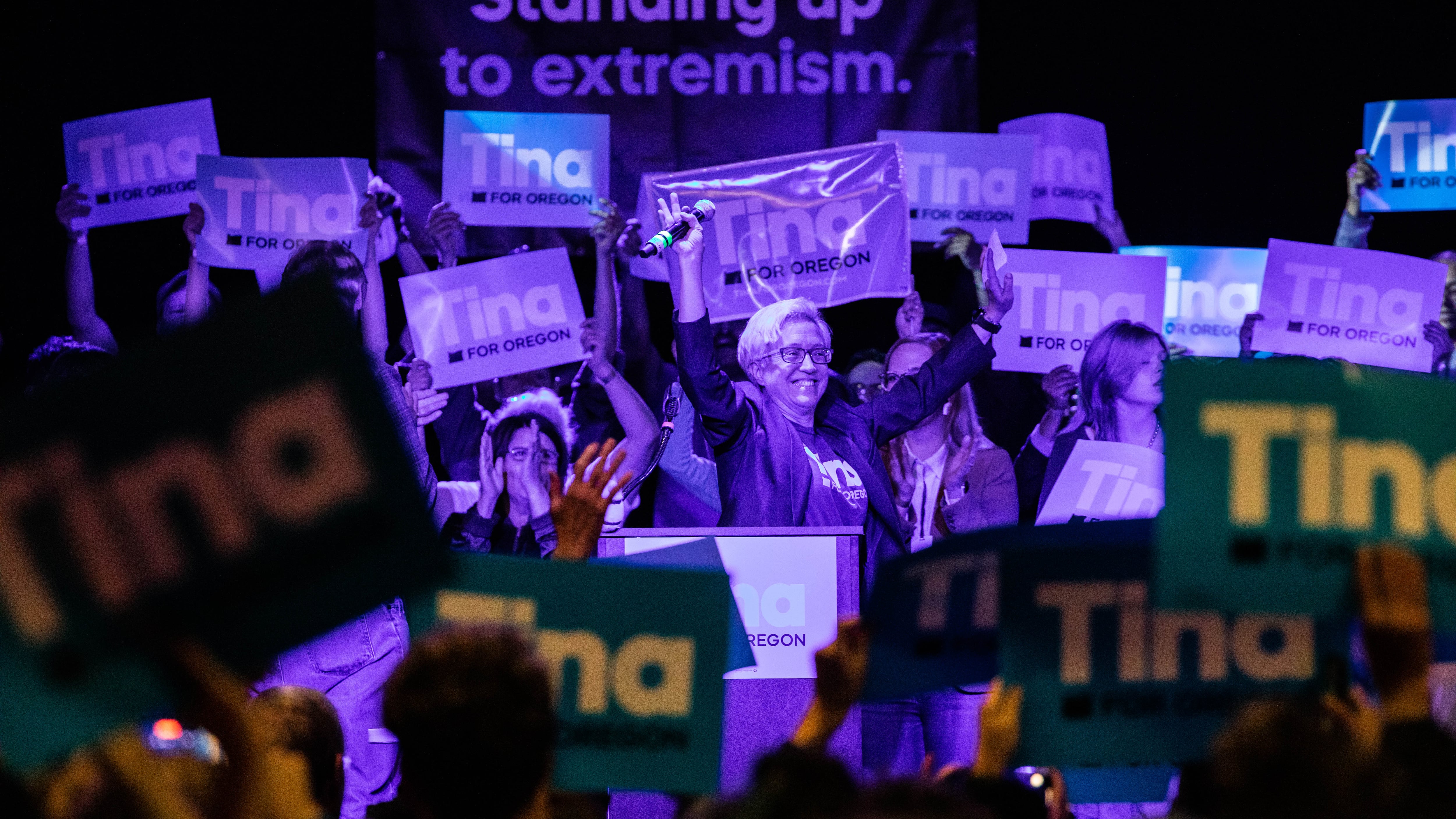The operators of the embattled La Mota cannabis dispensary chain, Rosa Cazares and Aaron Mitchell, made some of their largest campaign contributions to top Democrats in stacks of cash, WW has learned—including contributions made to Gov. Tina Kotek and Senate Majority Leader Rob Wagner (D-Lake Oswego).
That’s not illegal, according to elections officials, but it is highly unusual. And critics say it compounds another problem with the state’s campaign finance laws: Oregon is one of only five states that allows unlimited contributions. That means donors can give limitless contributions, in cash, from sources that can’t be traced.
“While it may be legal, I don’t think it’s appropriate,” says Senate Minority Leader Tim Knopp (R-Bend). “And I think it shows a severe lack of judgment to be taking cash from a cannabis business that is clearly troubled and allegedly owed millions to the state and federal governments as well as to Oregon businesses that allegedly performed services or provided products to them.”
As WW reported in March, La Mota and its principals, owner Aaron Mitchell and CEO Rosa Cazares, and a political action committee controlled by Cazares, gave more than $200,000 in campaign contributions to top Democrats in recent years, including $68,000 to Kotek, $10,000 to Wagner, and $45,000 to former Secretary of State Shemia Fagan, who resigned last week after WW revealed a consulting contract she took with a La Mota affiliate. (All of the recipients are Democrats.)
Campaign managers for Kotek and Wagner confirmed this week that Mitchell and Cazares made their political contributions in currency rather than with checks or credit card payments, as is the norm.
“Campaign staff picked the contributions up at the couple’s residence and immediately took the donations to our treasurer,” says Kotek’s campaign manager, Meghan Cavanaugh.
A Wagner campaign staffer picked up a $10,000 contribution last October at a Northwest Hills home that the couple was renting. Future PAC, a financing arm for the Oregon House Democrats, says it received its twin $10,000 contributions from Cazares and Mitchell in cash, too. Oregon Bureau of Labor & Industries Commissioner Christina Stephenson says her campaign received $4,000 in cash from Cazares in November.
Dealing in such large quantities of cash is unusual, even for a cannabis business.
Because of the federal prohibition on cannabis, federally chartered banks have been unwilling to open accounts or provide loans or other services to cannabis companies. But credit unions have stepped into the breach, and now most large cannabis companies have accounts that allow them to make deposits and write checks or transfer money.
The issue for critics: Unlike contributions made via checks or credit cards, cash leaves no paper trail. For campaign finance reformers, that is a big concern.
Small-dollar donors sometimes give cash at campaign events, but Portland lawyer Jason Kafoury, a co-author of state and local campaign finance reforms, says the contributions made by La Mota’s principals are unprecedented in his experience.
“I’ve never heard of cash contributions that large,” Kafoury says.
“When you have physical cash, it’s much harder to track and trace the true original source of funding for it,” he adds. “Do we really want our Oregon democracy to be defined by people that have tens of thousands of dollars in cash to hand to politicians?”
Kafoury says cash can lead to trouble.
“That kind of system allows for political corruption. How do you know that all of the cash went into the campaign account and not into a candidate’s pocket?” Kafoury asks. “If you hand them a check or credit card, you can trace it, it’s reportable.”
(It appears not all of the La Mota couple’s contributions were made in cash. Fagan said the first contribution she received from Mitchell in 2020 was not cash. She doesn’t recall the subsequent donations. The Senate Democratic Leadership Fund says Mitchell’s $10,000 contribution to the PAC in 2020 was made with a cashier’s check. Moreover, contributions made to Kotek by a political action committee controlled by Cazares were made by check.)
In November 2022 filings in Clackamas County Circuit Court, an attorney representing Mitchell and Cazares in a lawsuit stated in response to opposing counsel’s discovery request for the couple’s bank account and credit card records that the couple had none. “Defendant Mitchell does not have any bank accounts or credit card accounts,” wrote their then-attorney Richard Billin. (The opposing lawyer wrote back that the claim “appears highly dubious on its face.”)
According to multiple people who have done cannabis-related business with the couple, however, Mitchell and Cazares almost exclusively paid for products in cash.
Knopp wants to put an end to large cash contributions. He says he has asked the Legislative Counsel’s Office to draft a bill that would align Oregon law with federal law, which limits cash contributions to $100 or less.
Knopp is not accusing any candidate of pocketing contributions, but he says that stacks of cash are just a bad way to fund campaigns.
“There’s no way the public could know if it was $5,000 or $10,000 or $20,000,” he says. “And when you have an elected official who is in personal financial crisis, the temptation could be too great.”
